Credit card arbitrage – my semi-annual review

What is your most untapped asset?
Your expenses are your greatest untapped asset…if you know how to leverage them.
The above is the most important statement I will share in this message. If you don’t know what this means, today’s newsletter is for you. Me? I’m untapping the hidden value of my expenses with a healthy dose of credit card arbitrage. Don’t quite know what credit card arbitrage means? Don’t worry. Just think about manufacturing travel rewards out of thin air…with no real downside. Wait! That probably scared you even more.

Before we get started, would you, the reader, let me lump you into one of two groups? I will go out on a limb and say that everyone reading this is either still working or retired.
I know. Some of you will say that you operate under a hybrid model: you work a little and are retired a little.

Six months down, six months to go.
This is my semi-annual review of the results of my credit card arbitrage hobby. I hope you find what I have to share interesting, thought-provoking…and profitable.
Different for different folks.
Why did I divide you into two groups, the working and the retired? I did that because I think each of these two groups may have a different reaction to what I’m talking about. In some ways, these reactions might have quite a bit in common.

The person who is still working is going to say something like, “I am busting my butt working for the man…or the woman. I don’t have time to do what you’ve been doing with credit cards.” Lame excuse.

The retired person will likely say, “Hey man, I’ve been there. I’ve done that. I’m reading what you have to say in the kitchen, but I can see my recliner in the living room. My plan for the rest of my days is to be pretty near that recliner next week and next year. Lame but maybe accurate excuse. I have a rebuttal. Read on.
What can I say to all of that? Well, I would say to the person still working that what I’m doing with credit cards doesn’t take very much time at all. For the limited time this does take there is a sizeable reward.
What do I say to the retired individual who has already been there and done? They might feel as if they have already experienced everything that they ever want to experience. I would say this. I like recliners as well. When I was 40 years old, I would visit my parents who lived in a two-bedroom apartment at the time. One bedroom was full of junk. The other bedroom was their bedroom. They had two recliners in the living room. They spent quite a bit of time in those recliners. I lived in California. My parents lived in Illinois. I tried to visit them at least once a quarter. Yes, I was a good son. Whenever I did visit, they insisted, and I mean insisted, that I sleep in their bedroom. They would sleep overnight in their recliners. I understand the recliner story.

I would offer one other comment to those folks who are retired. You may not need any more hotel rooms or airplane flights for yourself. However, I think that you need and certainly want to keep your mind active. Credit card arbitrage keeps your mind active. You can always take any of the rewards that you get from what I’m going to talk about today and give them to others. Would your kids or your grandkids like a free vacation, free flights, and free hotel rooms? Of course, they would.

This all started with good intentions.
Now, let’s get started. Six months ago, I applied for and received a Chase Freedom Unlimited credit card from Chase Bank. From here on out, today, it will be referred to as “CFU.” CFU brings the glory.
Transferable points…are gold in another form.
Credit card arbitrage is where a person tries to maximize their “points and miles” to give them as much leverage using “transferable points” as possible. Maybe you know someone who has a “cash back” card. Cash back cards do not offer transferable points. That’s a huge disadvantage to cash-back cards.
With cash back cards, your rewards come in the form of money. Yes, you can take your earnings in cash. Cards that offer transferable points commonly provide their rewards in the form of free airplane flights or hotels.
I know. Cash might be better than free flights and hotels for you. But…there might be more to it than that. Please keep an open mind.

You gotta spend money to make money at times.
There is no annual fee for the Chase Freedom Unlimited card. However, I wouldn’t care if there was if the rewards exceeded the fee. I also have the CFU card cousin the Chase World of Hyatt card. The Hyatt card does have a modest annual fee of $95.
Each year the Chase World of Hyatt card gives its owner a “free night certificate” at any of Hyatt’s category 1-4 hotels. One of these certificates can be valued for as much as $300 a night and sometimes more. If you stop right there spending $95 to buy a hotel room that will cost you more than $95 is a good deal. Folks, that’s a form of credit card arbitrage.
I think podcasts rock.
I don’t know if you are a podcast listener or not. Podcasts are still kind of high-tech for some. I am a podcast listener. I listen to several “points and miles” podcasts. These podcasts explain the strategies that allow me to exploit the system if you will. I’ll recommend these as starters.

Award Travel 101
Point Me to First Class
All the Hack$
When I first started listening, I had no idea what they were talking about. They talked so fast and moved from one “hack” which to me is an unusual term for “strategy”, so quickly. They were using terms like “transferable points” and “subs” i.e. sign-up bonuses and “targeted offers” among other things.
When I’m walking my 4 miles every day or driving long distances in my rental cars I want to listen to something to reduce the boredom. For me, a podcast fills that void. I have listened to hours and hours of podcasts focused exclusively on the topic of points and miles. Of course, I listen to podcasts on many other topics as well.
Cash back credit cards.
I know some folks have a credit card that offers them “cash back”. Maybe they get 2% cash back on everything they buy with a particular credit card. Maybe this person charges as much as $10,000 a year with that card. You don’t have to be a math major to know that 2% of $10,000 is $200. Lots of folks who do this think they are stealing with their $200 bonus. Honestly, I used to think that as well. I was wrong. I wasn’t getting a good return at all.
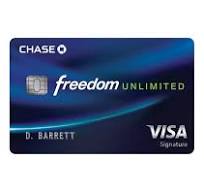
Why are transferable points so rewarding?
Why do I think the Chase Freedom Unlimited card with transferable points is so much better than a cash-back card? Let me tell you the multiple reasons.
Whatever type of rewards you earn you want those rewards to be something you can use, right? Who doesn’t like cash? However, what if the choice was getting $200 back in cash or $800 or even $1,600 back in airline flights or hotel rooms for the same amount of spend? That makes the decision a bit more interesting, doesn’t it?

What I’m doing with my CFU card is going to earn me about $18,500 in a single year because of the value of transferable points. That beats digging ditches!
I can get those earnings in the form of free airline tickets with nearly a dozen different airlines or with three of the major hotel chains. If I were working, I would need to make about $24,200 to clear $18,500 to spend on these vacation items.
Maybe these types of vacations no longer interest you. Maybe you’re at the beginning of your career and the idea of buying $18,500 worth of airline tickets and hotel rooms in a single year just seems way “too out there”. If you can earn those types of rewards by DOING NOTHING DIFFERENT with your spending amounts you can use the rewards, gift them to others, or save them.
I want to have all kinds of ideas working in the background while I spend my time playing.
I want my everyday expenses to work for me. Remember, your expenses are your greatest untapped asset…if you know how to leverage them.
I charge everything I possibly can to my CFU card. I never charge anything to my card just to earn points. I only charge items I would be buying anyway. What do I mean when I say I charge “everything”? I’m talking about federal and state income taxes, real estate taxes, insurance premiums, and everything else. You knew you could charge all of this stuff, right?

I have my CFU card linked to my Apple Watch and my Apple iPhone. I used “tap to pay” everywhere I can. I’ve probably had 50 teenagers express their astonishment that an old geezer like me pays for his stuff with his watch. These people never watched Dick Tracy! Watched? They don’t even know who Dick Tracy was. I don’t carry my CFU physical card with me. I leave that with Carol so she can use it.

Carol’s in on this?
Wait? A library girl is hooked up with credit card arbitrage? Yes! Why doesn’t Carol have her own CFU card? I’m saving that for her future! Sometime in the future, I’ll earn a referral bonus when she gets the CFU card or she will earn a sign-up bonus that makes getting the CFU card in her name the brightest idea. Right now, she uses my physical card to charge everything. I use my watch and my phone to charge everything on the CFU card on my end.

I am not a credit deadbeat or a cranky old man.
I do have a problem using my watch and my phone with my CFU card at the Waffle House. For some reason whenever I use tap to pay at the WH, my card gets rejected. Then when I get out in the parking lot I call up Chase and say, “What’s up?” They will tell me they have no record whatsoever of my ever being in a Waffle House and trying to use my card. That wouldn’t help all that much if I needed an alibi, would it? In the meantime, the Waffle House waitress thinks I’m a deadbeat. The Chase credit card people think I’m a cranky old man bothering them about nothing. No, life isn’t easy.

Turnips?
I would like to point out the obvious. No one should ever try to do what I am doing if the rewards being offered are not worthwhile to them. If you absolutely hate turnips, and the only rewards being offered by the Chase Freedom Unlimited card were turnips it would be a waste of time working toward a reward you didn’t need, want, or like, right?
I didn’t need no more turnips.
I used an identical strategy when I decided to retire. The reward I was getting from the company was money. I decided I didn’t need the money anymore. Why would I continue to work at a job for money if I didn’t need money? Money from work was a turnip to me.

No, you can’t do what I’m doing right now.
Before I tell you what I’m doing and how I’m doing it you need to know this. Credit offers and programs are constantly changing. The program I have now is no longer available to the public. It WAS available six months ago when I first shared this with you in my newsletter. You snooze you lose. There is a guy out in Omaha. He read my newsletter and acted on this. Good on him. Don’t worry. There will be different offers popping up all the time. One or more of them is bound to be even better than what I have now. If I go with that program I will tell you about it. Then you can jump on board like the guy in Nebraska or snooze in the recliner.
This is what I do and how I do it.
Here are the details regarding the rewards I am getting from the Chase Freedom Unlimited card.
First, the CFU card gives me a minimum of 1.5% back, in the form of transferable points, on every one of my purchases. I know what you’re saying. You get 2% cashback. Hold on. Let’s not jump to conclusions until you hear the entire story.

I also get 3% of my purchases back in points with restaurant and drugstore purchases.
At the end of the first year, and this is only a one-year program with Chase Freedom Unlimited, they will double my points. If I’ve earned 100,000 points at 1.5% they will give me an additional 100,000 points. That means they are giving me a total of 3% in points on all of my purchases except restaurants and drug stores. With restaurants and drug stores, I am getting 6% (3% + 3%) back. However, this is only half of the story.
The secret sauce is the transferable points.
Do you have a cash back credit card? Cash back cards do not give you “transferable points”. The CFU card offers transferable points to 14 different travel partners. These include 11 major airlines around the world. The transferable points options also include three major Hotel chains, which would be Hyatt, Marriott, and IHG, which is Holiday Inn. If you take nothing from what I am sharing today, remember, in almost every case transferable points are worth more than cash back offers.

Most people see the best points and miles redemption values with international flights and commonly in business class. That makes this partner lineup even more valuable.
CFU airline partners
Aer Lingus AerClub
Air Canada Aeroplan
Air France-KLM Flying Blue
British Airways Executive Club
Emirates Skywards
Iberia Plus
JetBlue TrueBlue
Singapore Airlines KrisFlyer
Southwest Airlines Rapid Rewards
United MileagePlus
Virgin Atlantic Flying Club
I told you that I stopped working because I didn’t need the money. I don’t need much in the way of airline support either. I am tied into my son’s airline family-dependent program. I use that for most of my domestic flights. For our international trips, I simply pay the going rate for Carol and me.

My hotel bills can be staggering.
I could use some help with hotels. During my lifetime, I have stayed in hotels (Value Suites – Sydney, Australia – above) for more than 7,000 nights. I used to say just 5,000 nights! Then, I refigured my analysis.
During the first 30 years (1972-2002) I was working. The company was picking up the tab for my hotels. With work travel and personal travel, I was on the road about two nights each week. In most cases, that meant the first 3,000 hotel nights (30 x 100) or so, I paid virtually nothing. I still have the scars from my 3:00 a.m. Pacific time wakeup calls to be ready for those 7:30 a.m. Eastern time zone breakfast meetings! Did anybody from our eastern-based headquarters care a lick about the west coasters and their time zone challenges? Not in the least.
I travel much more in retirement.
I’ve been retired for 23 years. I have averaged staying overnight in a hotel about 175 nights a year in each of my retirement years. Using those numbers would tell you that I’ve stayed in hotels for more than 4,000 nights during retirement. Yep. During my work career 3,000 hotel nights. During retirement 4,000 hotel nights. Any way you slice it, that’s 7,000 hotel nights. No wonder our Tempur-Pedic mattress as home is lasting so long!

I have stayed in my share of Motel 6 properties. I could tell you right off the top of my head at least 10 experiences where the police arrived at 3 a.m. with sirens and lights blazing just to chat with some of my fellow Motel 6 guests. I don’t stay in Motel 6 properties anymore.
For quite a few of those lifetime hotel stays I used Marriott hotels. That’s why Marriott gave me lifetime titanium elite status. I don’t have to do anything to maintain that lofty perch. That’s the meaning of the word “lifetime”.
I used to be a heavy Hyatt user. Then I wasn’t. Just a few months ago after hearing J.J. describe the Hyatt benefits I decided that I was going back to Hyatt. I figured I could get their top-tier status along with Marriott. I would get all of the perks that Marriott and Hyatt offer to their very best customers.

How much do I get from Chase?
On average Chase is giving me 3% (1.5% at the time of purchase +1.5% at the end of the year) in the form of transferable points for every purchase I make. Then I can transfer my Chase Ultimate Rewards points directly to my Hyatt account on a one-to-one transfer basis. The points transfer instantly. Since the beginning of 2024, I’ve stayed in Hyatt hotels for about 50 nights. Sometimes I pay cash and sometimes I use points. When I use points there is no charge for my hotel stay.
I keep a close eye on whether I paid cash for a room or used points. That’s what Excel spreadsheets are for, right? Right now, my average transferable point value is 2.68 cents per point. The average cost per night for a Hyatt that I paid for has been $186. Every point I transfer is worth 2.68 cents when I spend a point with Hyatt. How do I compute that?
The value of a transferable point can vary.
I divide the cost of the hotel room by the amount of points needed to get that room for free to determine the value of a transferable point. If I need to use 10,000 Hyatt points to get a $268 room for free the value of each point is 2.68 cents. If I need 5,000 points to get a $134 room the value of each point is 2.68 cents. So far, through May 2024 I have used points to get 27 free Hyatt hotel rooms.
The value of each point to do that was 2.68 cents. How much would I have paid for those 27 Hyatt nights if I wasn’t using points? $5,742! That’s 5,742 after-tax or $7,522 pre-tax! And that calculation uses the best discounted room rate for each of those 27 nights.
How much do I get from both Chase and Hyatt in total?
I earn a minimum of 3% in transferable points with my purchases. Restaurants and drug stores give me 6% from Chase. I then transfer those points from Chase to Hyatt at a rate of 2.68 cents per point. With a $100 spend, I earn three points. Those three points are each worth 2.68 cents or 8 cents in total. My Chase points are earning just above 8% when transferred to Hyatt (3% x 2.68 cents). At restaurants and drug stores, the earnings rate is 16.1% (6% x 2.68 cents) when transferred to Hyatt.
Here’s an example. If I spend $100 in a restaurant, Chase is giving me $16.10 (6% x 2.68) back to use at Hyatt. If I charge $100 on anything else Chase is giving me $8 (3% x 2.68) to pay for a Hyatt room. With my total spend, explained in just a moment, my Chase credit card arbitrage will give me 80 FREE nights at Hyatt in a year. That’s not bad.
Of course, you do NOT need to transfer points only to Hyatt hotels. You can transfer your points to all of those different airlines as well as Marriott and Holiday Inn hotels. That’s the value of transferable points compared to a paltry 2% cash back even if cash back can be spent on virtually anything.
Does this sound complicated? Imagine when I was first exposed to this information in a podcast while I was trying to battle traffic in the Holland Tunnel getting into New York City!

Wait. Is that a vibe I’m getting from you?
Even though you and I are a long distance from each other, I can feel the vibes of what you’re thinking. You don’t need 80 hotel nights. I get that. Not that many people do. And if you don’t need the reward why would you be interested in doing any of this?
Maybe you and your spouse and/or your significant other (wait that would be THREE people – awkward) or your parents or your grandparents or your children or your grandchildren might like to take a trip with you. Heck, they might like to take a trip without you. Maybe that trip would cost $15,000 or at least part of $15,000. You could pay for that $15,000 vacation expense with transferable points. Yes, you got those points for free by simply using your credit card to pay your federal and state income taxes, your real estate taxes, your insurance payments, and all of your other expenses. Now, do you feel me?
Yes, there is a fee to pay your federal and state income taxes when using a credit card. Not a problem. The reward you get back is higher in value than the credit card fee.
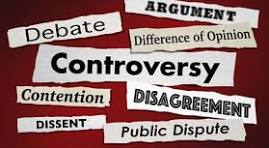
Controversy. Intrigue. Drama.
That’s not all. Are you ready to get into the controversial part of this program? I thought you were.
Stop! Before you read any further understand that you do NOT need to do this part of the program. If it’s too controversial for you don’t do it. Me? Very little is too controversial for me. My approach to this kind of stuff is to squeeze blood out of a turnip. Too many turnip references?
In addition to everything I have described about the transferable points with the CFU card, there is one more profitable item. What’s that?
Chase is offering me a 0% APR interest rate on all of my purchases for the first 18 months that I have the card. What does this mean? It means that I can charge as much as I want, all the way up to my credit limit, and pay only the minimum monthly payment required.

Most people wouldn’t want to do that. Most people would be very smart to NOT defer any payments on their credit cards. Why? You know why. Normally, if one makes the minimum payment, credit card companies charge 20-30% in interest on the unpaid balance. I think everyone should always pay their credit card bills in full every month…except in this one circumstance. What’s the circumstance? Before I tell you raise your hand if you love getting new ideas from this newsletter. Wow! That’s a lot of hands!

The exception of a lifetime or at least the exception as regards paying credit card bills.
Most rules have exceptions. I don’t WANT to pay my CFU credit card balance in full. I only want to make the minimum payment. I want to increase my balance, which after six months, is up to $55,000. My minimum monthly payment is one percent of that or about $550. I want my balance to reach $90,000 or more before I will begin to pay it down.
Through the magic of simply asking, my credit limit on the CFU card is now $90,600. That means I can charge up to $90,600 and when my monthly bill comes I only owe Chase $906.
Some of you are even better at math than I am. You’re saying, “Randy, under this program you make the $906 minimum monthly payment but you still owe these credit card characters nearly $90,000.” I’m not gonna disagree with you. I told you upfront you’re better at math than I am.

I had a plan. One of our friends in Atlanta always says “Randy is the man with the plan”.
Luckily, as we went along and I charged the $55,000 that we now owe Chase I had a plan in mind. Yes, it is true that I charged this stuff and didn’t give Chase very much money at all. Here’s the key element of my credit card arbitrage. I kept the money I owed Chase in a Vanguard money market fund. Yes! All during this time, Chase has been wondering, “Randy stopped paying us in full. Is he running out of money? What’s up with Randy?”
That money I am not paying Chase is sitting safely in a Vanguard money market fund, the Vanguard Treasury Money Market fund. That fund has been earning an average interest rate of 5.85%. A money market fund is not insured by the FDIC. However, as you know a money market fund going out of business is as rare as winning a one-billion-dollar lottery.
Ready for some more math?
Now let’s do some more math. Rather than give Chase the $55,000 that I owe them, I am earning 5.85% on $55,000. By the end of the year, I will have maxed out my credit limit of $90,600 and will have earned 5.85% on my average balance over 12 months. All the while Chase didn’t charge me any interest on my unpaid balances. I have instructed Carol to make only the minimum monthly payment.
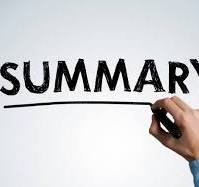
So how much am I making from all of this?
Let’s try to summarize the income opportunities. The earnings come from two sources. The biggest share of earnings comes from the transferable points. I expect to earn 689,000 Hyatt transferable points in one year from Chase. At 2.68 cents per point that’s $18,464. Remember that $18,464 to be spent on Hyatt hotels is TAX-FREE.
Also, remember you don’t have to spend your earnings at Hyatt. You and your family can spend those travel dollars with many different airline and hotel operators. When you transfer points from Chase to other travel partners you will get a different transferable point value. Sometimes it will be better than 2.68 cents and sometimes less.

Let’s add a cherry on top of this sundae.
The second earnings opportunity comes from the 0% APR Chase interest rate which is good for 18 months. I expect to earn $3,417 doing that. These interest earnings are taxable. My net after-tax earnings amount in cash will be $2,665.
How much are we talking about here?
In total, I have the following income and expenses:
Income
$18,464 in Hyatt dollars from the points earned from the CFU card
$2,665 in cash from the 0% APR scheme
Expenses
2,267 in credit card fees on federal/state income taxes
Total rewards
Total: $18,862 in after-tax earnings
With my current 31% marginal federal and state income tax rate I would have to earn at a job or withdraw from my IRA $24,709 in pre-tax dollars to match the program I’m telling you about.
Folks, I believe this to be true. I have spent less time figuring out how to generate $25 grand in pre-tax dollars than most people will spend trying to earn $25 grand at their jobs or in the case of retirees the time it took them to earn $25 grand that was put in their IRA.
How much time did this take to set up?
I earned all of that money by submitting an application to Chase and getting a credit card. Then I simply went about charging every one of my normal expenses. I don’t spend any more money than I would normally spend.

There is no tooth fairy.
We all know, at least most of us know, there is no tooth fairy. Are there drawbacks to this program? Yes, there are drawbacks. Some are real and most are imagined by people who like to project negative future outcomes. Permit me to explain.

Foreign transaction fees.
First of all, the CFU card charges foreign transaction fees of about 3%. At first, I thought I wouldn’t want to use this card during my foreign travels because of these fees. For the past few years, I’ve been out of the country for more than 90 days every year. I certainly don’t wanna pay a 3% surcharge using the CFU card when I’m out of the country. I have other cards that don’t charge these foreign transaction fees.
Then I got to thinking. Yes, when I travel out of the country they want to charge me an extra 3%. But…I’m earning 8% in total when I charge anything anywhere. I say go ahead and charge me 3% when I’m buying a Mexican sombrero. I’ll still earn 5% (8%-3%)…and I’ll have the sombrero! This “negative” really turned out to be a positive.
Remember…if the following doesn’t work for you then you don’t have to do it. This part of the overall strategy only accounts for 14% of the total financial return anyway.
This one is gonna make you squirm. You won’t be able to go to sleep tonight.
We’ve all been told to clean our plates, make our beds, and ask to be excused from the dinner table. We’ve been told to pay our bills on time so that we have a great credit rating. Some have followed that advice better than others.
I have a mortgage on my home and a car loan. Why do I have these loans? I have these loans because the interest rate I’m being charged is less than the rate of return I can earn on my investments. As I have mentioned to you in the past why in the world would I want to pay off a 2% loan when I’m earning 8% on my investments? I wouldn’t.

I got those loans because I had sterling credit. I remember going to the Alaska Airlines credit union and applying for a new car loan. The lady told me my credit score was 850, a perfect score. She had never ever seen that.
Now I don’t know if this woman was a trainee and this was her second day on the job or if she had been with the credit union for 45 years and had dementia. But I’m not making it up. That’s what she told me.
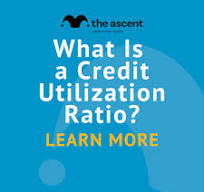
Credit utilization ratio.
I told you that my current balance on the CFU card is $55,000. That balance is climbing as fast as I can make it climb. When I do stuff like that I am increasing my credit utilization ratio. What the heck is a credit utilization ratio?
Let’s say I have $150,000 in total credit limit with all of our credit cards. Let’s say we owe $50,000 on all our credit cards combined. To get our credit utilization ratio I divide our outstanding current balances, $50,000, by our total credit limit $150,000. That would make our credit utilization ratio 33%. Is that good?
The three major credit card reporting agencies would like you to keep a lid on your credit utilization ratio. Your credit score will be much higher if your credit utilization is less than 10% compared to if it were 30% or 50%.

Maybe you know where I’m going with this. In the first six months of my credit card arbitrage program, my credit scores have slipped. I know. It makes it sound like I’m a deadbeat husband? Carol is a smart woman. Even though I was as poor as a church mouse when we met she married me. She saw potential. She knows enough to “go along with the plan” when I tell her I am now into credit card arbitrage. Your spouse doesn’t have that much confidence in you? No? I don’t think any comments by me would be appreciated on that subject at this point.
I don’t care what I say. Some people won’t buy this point.
I already have a solid long-term home loan and a solid long-term car loan. I don’t need a good credit score at this point. Did you hear that? I don’t need a good credit score! I don’t expect to need any loans anytime soon. I feel your vibe again. “Randy, you don’t NEED a good credit score? Are you nuts?” Nope. If I don’t need something, and right now I don’t need a good credit score, I can choose $25 grand in pre-tax returns instead.
There you go again. I can feel your vibes once more. You’re saying to yourself, “Randy it’s hard to predict the future”. I will agree with you on that. It is difficult to predict the future. However, I would rather have $20,000 to spend on Hyatts (80 free nights my friend) than have a perfect credit score that I have far less than a 1% chance of needing in the next year or two. That’s just me. I’m a risk taker. I got where I’m at by taking calculated risks and not being afraid of my own shadow. I don’t see much of any of this as being a risk at all. Remember, I am paying what the credit card company asks me to pay. I have the money “in the bank” to pay off my credit card bill any time I want. Why would I want to pay off a ZERO percent loan when I can safely invest the money at nearly 6%?

Credit pulls. Hard ones at that.
I hope you understand and appreciate the pictorial puns I offer!
My credit score is not only being impacted by my credit utilization ratio. It is also being affected by seven “hard” credit pulls as well.

I got a new car loan on my 2024 Tesla Model X purchase a few months ago. I went with a credit union in Maryland. Then when Tesla couldn’t deliver my car fast enough the credit union threatened to revoke my three-month loan rate lock at 3.99%.
When I saw that coming, I applied to both Alaska Airlines and Navy Federal Credit Union. They all did hard credit pulls, approved me for the loans, and then I didn’t need the loans because Tesla finally delivered the car on the very last day of my Maryland credit union rate lock!
The credit rating companies are showing three auto loan hard credit pulls when in reality they should only be showing one. I never really needed the other two. Those car loan credit pulls will slowly drop off increasing my credit score.
I can’t separate the impact of my increasing credit utilization ratio and the credit pulls.

So, what has happened to my credit score?
I think my credit scores are down but I don’t know how much. In general, they are better than I would have expected.
Equifax – 763 – Very good
Experian – 758 – Very good
TransUnion – 729 – Good
It doesn’t matter to me at this point what my credit scores are. I don’t expect to need any credit in the near future. I do expect my scores to decline over the next six months as my credit utilization ratio increases from the current 30% to 50% or higher. That’s the tradeoff to earn nearly $20,000 in Hyatt dollars.
For me, the benefit of getting 80 free Hyatt hotel nights far outweighs a somewhat lower credit score than I am not planning to use.
Again, if this part of my arbitrage program concerns you then don’t use it. You will only be losing 14% of the overall arbitrage benefit.
That’s the update for now.
This pretty well sums up my semi-annual credit card arbitrage results. I will get back to you in another six months or so with the final one-year update.

Of course, this assumes I am not hauled off to the hoosegow in the interim. Maybe I will come back to you with my tail between my legs telling you that I fell in love with the Tesla Cybertruck (not likely but I’ve seen them in person and they are pretty cool). I might tell you I tried to buy one and got turned down for a car loan. I don’t think that will happen but as we all agreed a little earlier we can’t predict the future.
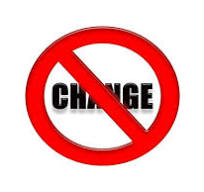
I can’t go without mentioning this.
I will point out another obvious fact of life. People are resistant to change. They will come up with all kinds of excuses, not to change the status quote. I get that. For some things, I am also resistant to change.
I don’t work so I can’t use the excuse that I’m too busy to be involved with credit card arbitrage. My form of credit card arbitrage doesn’t require very much time once I set things up to begin with.

Although I am retired, I am not resigned to the fact that the recliner is my future vacation. I have nothing against recliners. But, when we built our house back in 2000 our designer told us that recliners weren’t very cool. Mind you, she was kind of a froufrou California designer but we loved her work. I grew up in the Midwest. Where I grew up recliners were very cool. Nevertheless, we don’t own a recliner. We have not owned a recliner for 25 years. I have not mowed any grass since 1983. When I sit in the kitchen, I can’t see any recliners. As long as that is the case the recliner vacation is not an option for me.
This was my semi-closing argument.
I have presented my case. You as a member of the jury get to turn thumbs up or thumbs down. Ladies and gentlemen of the jury thank you for listening. Now, it’s up to you.
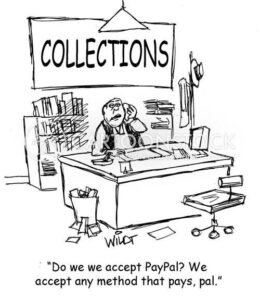
Dodging debt collectors in Southern California.

Randy Lewis
